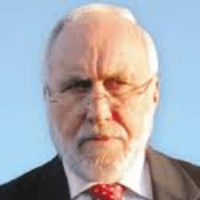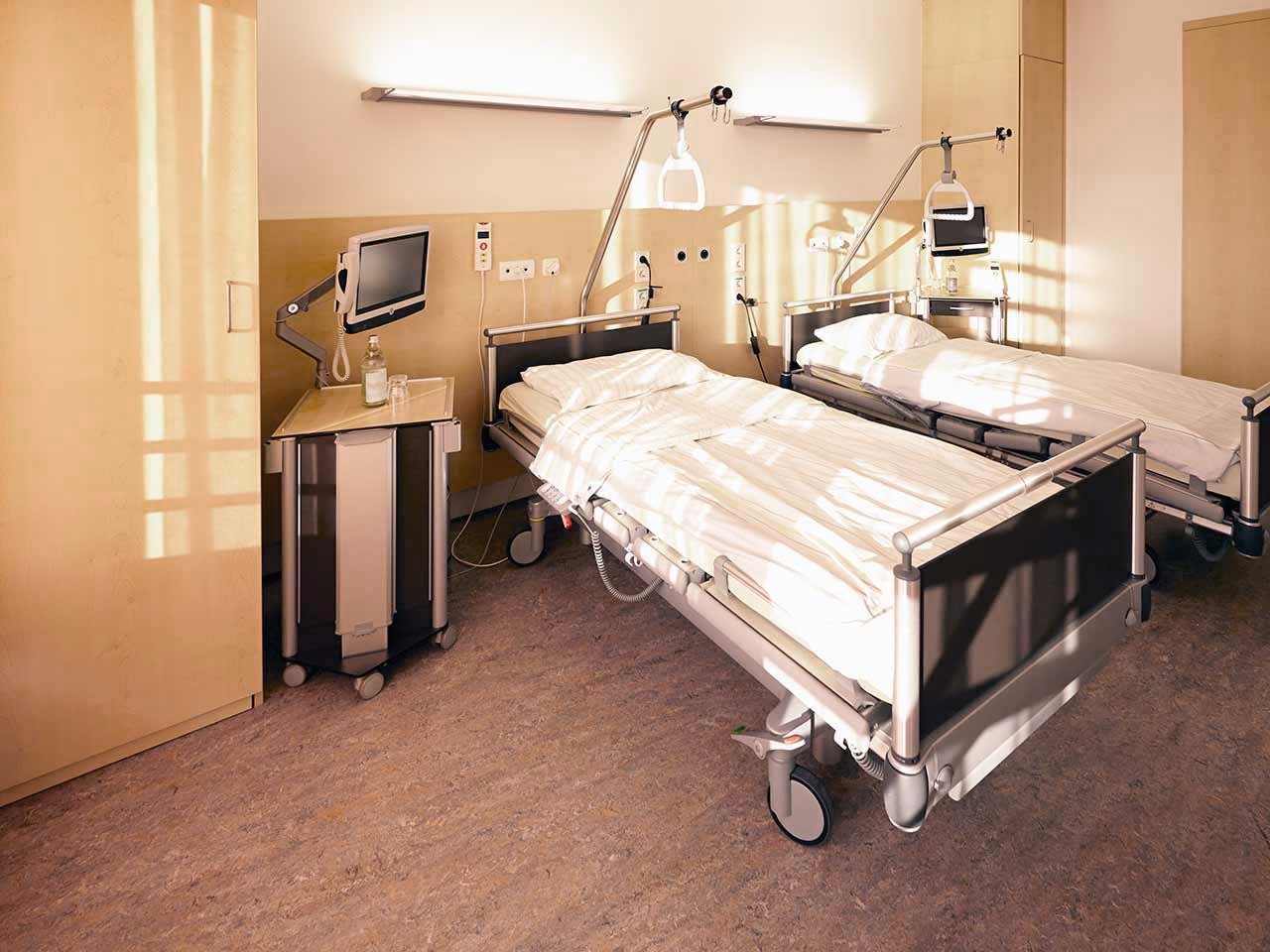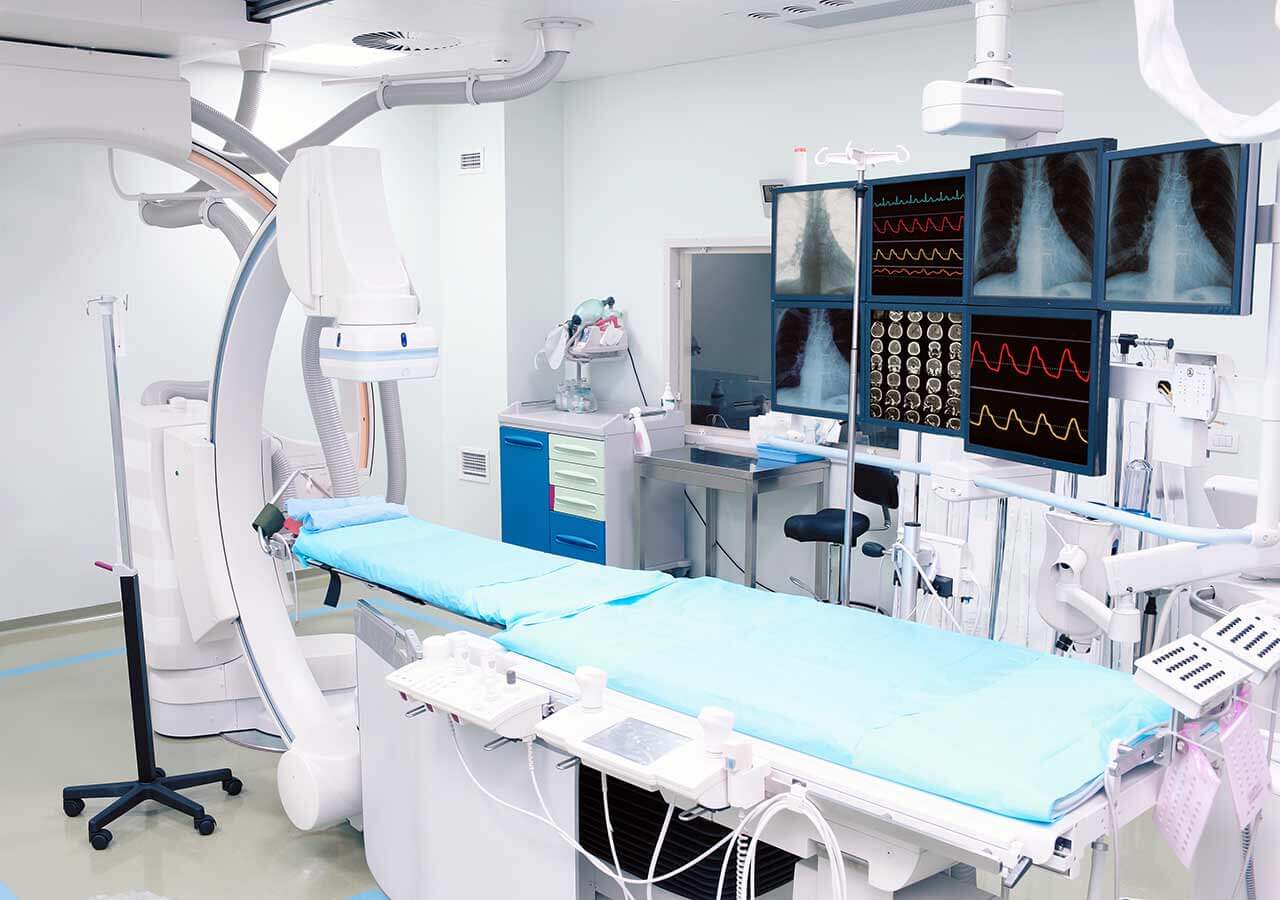
The program includes:
- Initial presentation in the clinic
- clinical history taking
- review of medical records
- physical examination
- laboratory tests:
- complete blood count
- general urine analysis
- biochemical analysis of blood
- inflammation indicators (CRP, ESR)
- indicators blood coagulation
- neurological examination
- functionality x-ray of the spine
- CT/MRI scan of the spine
- neuropsychological tests (on indications):
- ENMG (electroneuromyography)
- SEPs (somatosensory evoked potentials)
- preoperative care
- discotomy and joint replacement of intervertebral disc
- postoperative control
- symptomatic treatment
- control examinations
- the cost of essential medicines and materials
- nursing services
- full hospital accommodation
- developing of further guidance
Required documents
- Medical records
- X-ray examination, MRI/CT scan (if available)
Service
You may also book:
 BookingHealth Price from:
BookingHealth Price from:
About the department
The Department of Adult and Pediatric Neurosurgery at the University Hospital Jena offers the full range of modern services in this medical field. The high level of technical equipment in the department allows for the performance of all highly specialized surgical interventions to treat pathologies of the central and peripheral nervous system. The clinical practice mainly focuses on the diagnostics and surgical treatment of diseases, injuries of the brain, spine, spinal cord, intervertebral discs, nerve plexuses, functional neurosurgery and the treatment of neurosurgical pathologies in children. The department is headed by Prof. Dr. med. Rolf Kalff.
All operations are performed after a thorough examination of the patient and an accurate diagnostics. As a university medical facility and part of the Neuro-Oncology Center Jena, the Spine Center Thuringia, the department provides a comprehensive interdisciplinary treatment of various diseases based on the use of the very latest medical advances. In addition, the department has implemented a quality management system certified in accordance with the DIN EN ISO: 2008 requirements.
One of the priorities of the department is the treatment of brain tumors. The main purpose of the department's team of doctors is to offer patients the highest possible safety during surgery and to provide the most effective surgical treatment. The treatment programs are discussed at the department’s tumor boards in collaboration with the colleagues in the field of oncology and radiation therapy. The treatment of tumor metastases is carried out in cooperation with the specialists from the departments, which deal with the treatment of primary tumors.
The service range of the department includes:
- Diagnostics and surgical treatment of brain diseases
- Brain tumors
- Glioma (astrocytoma, oligodendroglioma, ependymoma, glioblastoma)
- Meningioma
- Pituitary tumor (pituitary adenoma)
- Acoustic neuroma
- Lymphoma
- Brain tumors in children
- Brain metastases
- Other brain neoplasms
- Surgical treatment using neuronavigation and neuromonitoring
- Radiation therapy
- Chemotherapy
- Follow-up examinations
- Cerebrovascular pathologies
- Cerebral hemorrhages
- Subarachnoid hemorrhage
- Intracerebral hemorrhage
- Epidural hematoma
- Subdural hematoma (subdural hemorrhage)
- Vascular malformations
- Cerebral aneurysm
- Cerebral arteriovenous malformations (angiomas)
- Cavernous hemangiomas (cavernoma)
- Cerebral hemorrhages
- Hydrocephalus
- Brain tumors
- Diagnostics and treatment of diseases of the spine, spinal cord and intervertebral discs
- Degenerative spinal diseases
- Herniated disk
- Spinal stenosis
- Degenerative instability and displacement of the vertebrae (spondylolisthesis)
- Degenerative and rheumatic diseases (for example, spondylosis, spondyloarthritis)
- Spinal injuries
- Spinal cord tumors
- Extradural tumors
- Metastatic tumors
- Chordomas
- Intradural tumors
- Extramedullary tumors (for example, meningiomas, schwannomas)
- Intramedullary tumors (mainly gliomas (astrocytoma, ependymoma, glioblastoma))
- Extradural tumors
- Degenerative spinal diseases
- Peripheral nerve surgery
- Peripheral nerve tumors
- Nerve compression syndromes
- Nerve lesions
- Functional neurosurgery
- Neurosurgical pain therapy
- Deep brain stimulation (in Parkinson's disease)
- Spastic syndrome
- Epilepsy
- Other diseases, therapeutic options
The department specializes in the use of the following surgical techniques:
- Microneurosurgery (minimally invasive interventions using a microscope)
- Endoscopic minimally invasive neurosurgery
- Endoscopic treatment of cysts, hemorrhages and abscesses in the brain
- Endoscopic treatment of carpal tunnel syndrome
- Intervertebral disc endoprosthetics
- Stereotactic neurosurgery
- Diagnostics of neoplasms in hard-to-reach-areas
- Treatment of brain tumors and vascular malformations (oncologic stereotactic surgery)
- Treatment of motor disorders and some types of chronic pain (functional stereotactic surgery)
- Neurosurgical laser techniques
- Brain surgery
- Spinal cord surgery
- Percutaneous intervention in spinal disc herniation
- Fluorescent resection of tumors
- Photodynamic laser therapy
- Pituitary surgery
- Functional neurosurgery
- Other surgical techniques
Curriculum vitae
Professional Career
- 1972 - 1978 Study of Medicine at the Free University of Berlin and the Rhine-Westphalian Technical Aachen University.
- 1978 - 1981 Neurosurgical training at the University Hospital Wuppertal.
- 1981 - 1984 Internship in the Department of Neurosurgery at the University Hospital Essen.
- 1983 PhD thesis defense in Neurosurgery, University of Hamburg.
- 1984 Board certification in Neurosurgery.
- 1984 - 1994 Senior Physician in the Department of Neurosurgery at the University Hospital Essen.
- 1988 Doctoral thesis defense in Neurosurgery and Venia Legendi at the Medical Faculty of the University of Essen.
- 1994 Extraordinary Professor at the University of Essen.
- 1994 Special Neurosurgical Intensive Care.
- Since 1994 Head of the Department of Neurosurgery and Head of the Chair.
- 1998 - 2003 Initially the Second and then the First Chairman of the German Society for Spine Surgery.
Memberships
- Chairman of the Neurosurgical Research Foundation of the German Society of Neurosurgery.
- Member of the German Society of Neurosurgery.
- Member of the German Society for Spine Surgery.
- Member of the European Association of Neurosurgical Societies (EANS).
- Member of the German Society of Surgery.
- Member of the Thuringian Society of Surgery.
- Member of the Association of Lower Rhine-West Westphalian Surgeons.
- Member of the German Cancer Society.
- Member of the Thuringian Cancer Society.
- Member of the German Union of Sports Physicians.
- Member of the German Neurological Society of Neurological Intensive Care and Emergency Medicine (DGNI).
Awards and Certificates
- 1989 Von Haberer Prize of the Association of Lower Rhine-West Westphalian Surgeons.
- 2006 Abul-Kassis Medal of the Pan Arab Neurosurgical Society.
- 2009 Certificate in Spinal Neurosurgery of the German Society of Neurosurgery of the Professional Union of Neurosurgeons.
Photo of the doctor: (c) Universitätsklinikum Jena
About hospital
According to the prestigious Focus magazine, the University Hospital Jena regularly ranks among the top German medical facilities!
The hospital has positioned itself as a multidisciplinary medical facility with a long history of more than 200 years. Since its foundation, the hospital has been constantly developing and modernizing, thanks to which nowadays it offers patients the highest level of treatment in Germany based on the use of innovative technologies and the very latest therapeutic techniques. The hospital consists of 26 specialized departments and 25 research institutes. It treats more than 53,600 inpatients and about 274,000 outpatients every year. The staff of the hospital includes more than 5,600 competent doctors.
The extensive resources of the university hospital, high treatment standards, and the introduction of new research developments provide first-class treatment in Germany meeting the stringent international standards. The hospital has an excellent reputation not only in Germany, but also far beyond its borders, due to which it accepts a large number of foreign patients for the diagnostics and treatment.
Despite the technical progress and the availability of accurate computerized systems, the patient’s physical health and emotional state is the main value of each employee of the hospital, since some diagnoses cause emotional distress in patients. The doctors of the hospital believe that the key to a successful result is a comprehensive and individual approach, so they spend a lot of time talking with patients, listen carefully to all their wishes and support at all stages of the therapeutic process. All this in combination with high-precision diagnostic techniques and the very latest types of therapy forms a solid basis for the achievement of an optimal treatment result.
Photo: (c) depositphotos
Accommodation in hospital
Patients rooms
The patients of the University Hospital Jena live in comfortable single and double rooms made in a modern design. Each patient room is equipped with an ensuite bathroom with shower and toilet. The room has enough space to store personal belongings, as well as a table and chairs for receiving visitors. A bedside table can be converted into a table so that patients can eat right in their bed. Each room has a TV, and there is also access to the Internet. In addition, the hospital offers enhanced-comfort rooms.
Meals and Menus
The patient and his accompanying person have a daily choice of three menus. If for some reason the patient does not eat all the foods, he will be offered an individual menu. Please inform the medical staff about your dietary preferences prior to the treatment.
Further details
Standard rooms include:
Religion
Religious services are available upon request.
Accompanying person
During the inpatient program, an accompanying person may stay with you in a room or at the hotel of your choice.
Hotel
During the outpatient program, you can live at a hotel of your choice. Managers will help you to choose the most suitable options.





